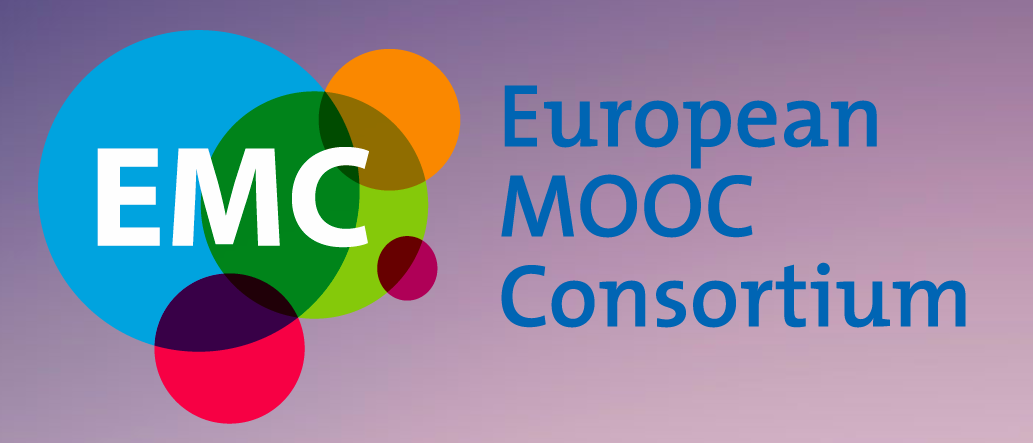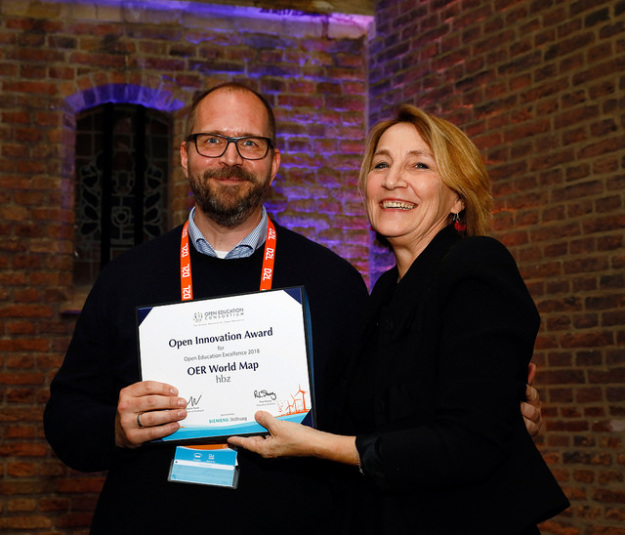Two weeks ago I was participating in CNX2014 at Rice University, Houston. Although I was mainly tweeting from the conference, I did take a few notes which I’ve reproduced below. These notes focus only on Monday’s sessions so, for a more detailed and varied account of what happened, check out the conference hashtag (#cnx2014) for lots of interesting participant reflections.
Connexions/OpenStax College Updates
Connexions (CNX) is now 15 years old! And whilst the conference did look back at the conception of CNX and some of its achievements over the past decade or so, there were exciting announcements to come … First, there was the update from Daniel Williamson on last year’s OpenStax College (OSC) statistics on adoption and cost savings (see the great video from 2013 here, which was showcased at that event; Daniel had produced a cool updated version for this year.) OSC now has 15 “ecosystem partners” (from Foundation organisations to both non- and for-profit partners), 3.7 million unique visitors have checked out OSC content since 2012 and there have been almost 500K downloads of materials to date. Moreover, $9.3 million worth of savings have been made by students, 86 derivatives of the textbooks have been created, 568 colleges have chosen to adopt OSC textbooks and 95.4K students have benefited from OSC materials … Pretty impressive stuff.
The second exciting announcement concerned the Connexions platform, which has over 1 million unique users each month. In addition to thousands of searchable “modules” and “collections” of OER, OSC materials are also available so you can produce your own version of the OSC textbook you want to use. Kathi Fletcher (Shuttleworth Foundation Fellow) and the team at Connexions (Ed Woodward and colleagues) have been hard at work over the past year or so to make the repository and remixing/reworking of content easier. Kathi has blogged extensively on the process of creating the Toolkit and Editor: you can read more here. As a result, and to reflect these great changes which will be available in a couple of months, Connexions has been rebranded… and is now OpenStax CNX! You can find out more via the video here.
Monday’s Keynote Session
Keynote Congressman Ruben Hinojosa began his discussion of the proposed College Textbook Act by describing the stark reality of education in the US today: 1.2 trillion dollars worth of student debt, the cost of college rising by 87% over the past 2 decades (and 45% over the past 10 years), textbook costs rising by 82% over the past decade and in the 2012 academic year 7 in 10 college seniors having student loan debt. To compound the issue further, the financial crisis of the past few years has meant less financial aid is available to help students. The need for radical change in the US education system has never been more apparent.
Key to changing the situation, according to Congressman Hinojosa, is raising awareness of Open Educational Resources (OER) and getting support for legislative change. According to Congressman Hinojosa around three quarters of the House of Representatives are unaware of OER. In addition, the proposed College Textbook Act which would facilitate the US-wide use of OER such as open textbooks (introduced the end of November 2013 and currently with around 40 co-sponsors including Congressman Hinojosa) needs further support. Raising awareness of OER is therefore essential and Congressman Hinojosa urged conference attendees to approach their representative and discuss/gain their support for the proposed Bill. You can read more on this legislation and what you can do to help via SPARC and Creative Commons.
“Winning Public Policy Strategies for OER”
Congress Hinojosa also participated in Monday’s morning panel session with Barbara Chow (Hewlett Foundation) and Mary Burgess (BCcampus).
BCcampus are currently producing 60 open textbooks as part of their Open Textbook Project and have received over 11 million CAD worth of government funding over the last decade to create and use OER in British Columbia. Mary described the work of BCcampus as “driving policy”: students in Alberta have seen what’s happening in British Columbia and campaigned for more OER to be used in their Province. As a result a Memorandum of Understanding has been signed between British Columbia and Alberta (see Edmonton Journal article noted in BCcampus FB post on 10 April) to try to increase the usage of OER.
Barbara Chow talked about how to scale (e.g. taking open textbooks from “early adopters to the mainstream”) and the nine key conditions for “policy success” that Hewlett had identified following a review of a number of different campaigns. These are: 1) having a decision making body, 2) an “open policy window” 3) technological innovation 4) a “dynamic master plan” which is flexible enough to respond to changing situations 5) someone who “call[s] the key shots” and provides direction 6) an “influential support coalition” (the “more diverse the better”) 7) a “mobilised public” 8) a “powerful inside champion” and 9) a “clear implementation plan” for what you are trying to do.
Further, according to Barbara, policymakers want to see evidence for “economic benefits” (e.g. is money being saved by using OER?) and any “instructional advantages” to using materials that are ‘open’ (e.g. do OER improve the learning experience of students? Do OER benefit educators? In what ways?) There is a need for research data to guide/inform policy; some of this data was presented over the course of CNX2014 itself (e.g. there were cost savings reported by a number of presenters and in Tuesday’s Student Efficacy… session, my co-presenters Denise Domizi and John Hilton shared a range of great findings, including test score and retention data relating to OSC use.) However, it is sometimes difficult to find the type of data that Barbara was talking about (e.g. there is perhaps not a lot of it, or it is not particularly visible; it can also be time consuming looking for this type of evidence). As you may have seen if you read our project blog regularly, we have been curating evidence for the impact of OER and created an Impact Map where you can explore data for a range of research questions, as well as find OER policies and projects around the world. We hope that this map will be of use to a range of stakeholder groups, including policymakers. You can read more about the Map’s development elsewhere on our blog. We’d love to know what you think and invite you to both explore and contribute.
Congressman Hinojosa ended the morning panel session by returning to reflect on “respect [for] academic freedom” (e.g. the flexibility of OER enables teachers, rather than restricts them) and the need to support the use of OER in the classroom and ensure that education is made as accessible to as many people as possible (e.g. encourage distance learning and campaign for more financial aid to be provided for students (as Congressman Hinojosa had noted in his keynote session, the recession has resulted in a massive cut in funding to help disadvantaged students).
In the Q&A session, participants asked about the quality of OER (Mary Burgess: “I don’t want [educators/students] to use them at all costs but because they are best resource”) , reflected on the time needed to remix OER (do we need to incentivise to get more educators involved?), and if certain types of educators were more involved in championing OER than others (Barbara Chow noted that tenured faculty tend to be more vocal in supporting OER: do we need to incentivise early-career educators more?) The need to involve as many different organisations as possible (Mary Burgess mentioned the “need to bring bookstores into the conversation” for example) was also discussed further by participants and the panel.
“On the Ground Success with OER”
This afternoon’s panel session “On the Ground Success with OER” featured Collaborative Statistics author Barbara Illowsky, educator and OpenStax College textbook user Jason Pickavance and the Lumen Learning’s Kim Thanos.
Jason spoke about the pilots of (mainly) math open textbooks at Salt Lake Community College (SLCC) and how using OER had led to greater rates of retention and learning. He reported institutional support via the absorption of some costs of implementing the pilot scheme. Jason made some pertinent observations, noting the “gradual state disinvestment in education” and “casualisation of academia” as critical issues (“OER are happening in a larger context”). Jason also urged fellow educators to “exercise their full professional integrity” by making use of OER. OER such as OSC appears to enable educators to own/take control of their own practice again as they have more autonomy over how they utilise resources. Jason’s experiences were echoed by some of our respondents to the recent OSC educator questionnaires we ran last autumn/winter. As one questionnaire respondent noted: “… I think the text is a great foundation, but I don’t feel constrained to shy away from employing other teaching tools for fear they might ask: “Well, if you were going to have us watch this video or do this online tutorial – why did we have to pay $250 for the textbook?””
Barbara spoke about the role publishers and other for-profit organisations have. She also talked about the process of creating Collaborative Statistics and the impact on students ($1 million saved at De Anza over 5 years). Barbara emphasised the need to lead and own the process, which in turn sets an example to others (e.g. sharing materials): we “need faculty to come up with it as our own idea.”
Kim was the final speaker on the afternoon panel. She reported on the Kaleidoscope project. Kaleidoscope work directly with colleges and other educational institutions to repurpose existing “…open educational resources (OER) to improve student success.” Kaleidoscope work with others to create “open course frameworks” (a process “not easily automated”). Again the idea that ‘open’ makes a real difference to educators was noted by Kim: it’s about “control and professionalism in faculty” and the impact the use of OER has on students.







Reblogged this on methylated-orange.